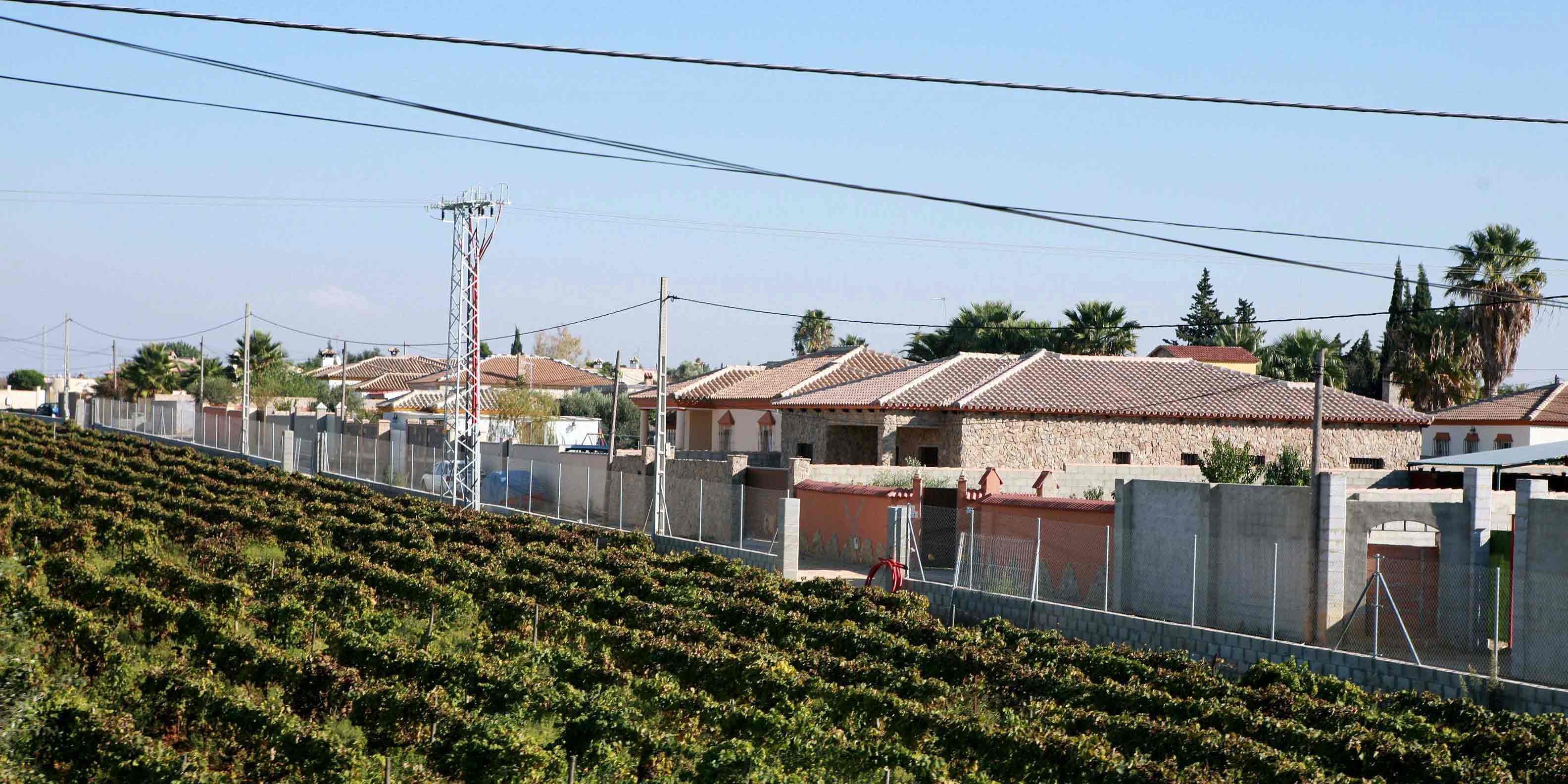 |
| Illegal construction in Chiclana |
Another 10% to remain under threat of demolition
ANDALUCÍA (Agencies) Nine out of ten constructions, be they individual homes or within an urbanization, that were constructed on what is called suelo no urbanizable, or restricted land, will be able to obtain property rights for their owners, after a decree was approved last week by the Junta de Andalucía's Government Council. The rest will be demolished unless otherwise instructed by a Court of Law. The announcement by the Junta's Councillor for Housing, Josefina Cruz Villalón, confirms what had previously been mentioned by the President of the Junta, José Antonio Griñán, during the State of the Region debate last June. In fact, there is no register of otherwise 'illegal' construction, except as listed in reports such as those carried out in the Axarquía region of Málaga, for example. So, with the help of aerial photography, the Junta has calculated that about 10% of the 250,000 'illegal' buildings can be made fully legal. Another 80% will not be officially 'legalized' but will have their circumstances approved so that they can legally obtain basic services such as water, power, etc.. The remaining 10% will not get any kind of approval or legalization and will be scheduled for demolition, unless otherwise directed by a court.>>>
IF YOU FIND THIS ARTICLE INTERESTING, USEFUL OR ENTERTAINING, PLEASE CONSIDER THE WORK, EFFORT AND COST IT TAKES TO BRING IT TO YOU. ALMOST EVERY ITEM THAT APPEARS HERE HAS TO BE TRANSLATED FROM SPANISH. WE WOULD APPRECIATE A DONATION TO CONTINUE A FREE SERVICE.
The reason for the situation of these last is that they have been built on fully protected land, so the applicable town planning laws have not prescribed. They are mostly built on areas of 'natural risk', such as on river beds, flood plains and other such. Many of them are also under judicial procedures in any case.
Indeed, many of the supposedly 'illegal' urbanizations have already been 'regularized' (good Spanglish word, that!) as each council puts into effect its new planning regulations.
Nevertheless, the decree makes a distinction among those properties that will get their licencia de primera ocupación (licence of first occupation) as long as they meet the current building regulations -whether or not they have planning permission- and those that do not meet these current standards but met regulations current at the time of building, as well as all those built before 1975 (if these are not in a declared state of ruin). The latter are pretty scarce, according to Junta sources, who says that most illegal building was carried out in the 1980s and 90s.
A licencia de primera ocupación is the document that allows the property to be inscribed at the Property Registry, which in turn will permit the utility companies to connect to their supply.
The legal term that applies to 80% of these 'recognized' properties -a way round various laws- is asimiladas afuera de ordenación (assimilation out of town planning ordinance), which, while not obtaining a licencia de primera ocupación, they will nevertheless be allowed to remain as they are and get their utilities up to date. The procedure is in the hands of the local town hall, which will have to decide which buildings in the municipality get such 'recognition'.
Josefina Cruz pointed out that the decree is not aimed at getting properties legalized indiscriminately, but "a response according to need", adding that it is an "exercise in reality" that intends to sort out construction that is in a legal quandary: they are illegal but the 'crime' has prescribed.
The Councillor also said that the 'legalization' procedure sends out a message of 'wiping the slate clean' but that in future will not be so obliging, and that the cost of obtaining 'legalization' "will be borne by the proprietor", not the public purse.
"Legal instruments and taxes can now be established so that basic services and utilities, and urbanization costs, can be charged to the individual owners or renters and not to all the members of a community," said Cruz Villalón. "Many of these homes are paying Council Taxes (Impuesto de Bienes Inmuebles, or IBI) even though they are illegal."
The decree is not a finality in itself, said the Councillor, but a way for the results of years of illegal building to be recognized as existing; they cannot be demolished and they can't be legalized.

No comments:
Post a Comment